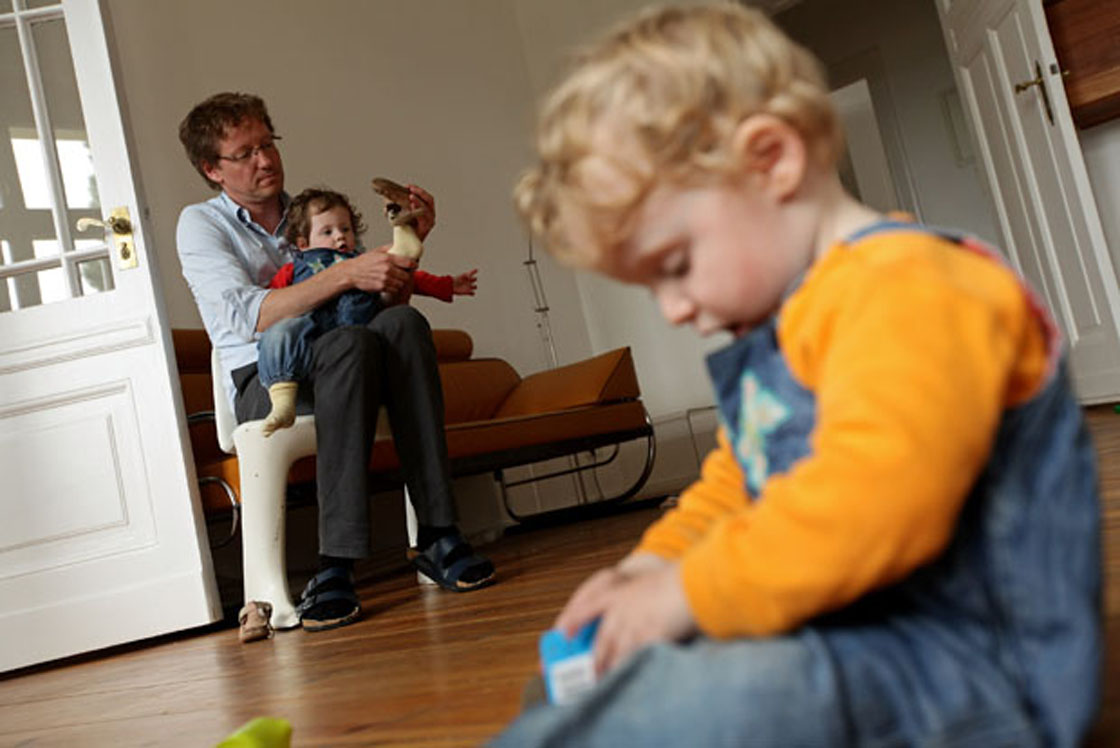Single mom Kim Stoodley always puts her kids first, whether it’s forgoing new work clothes to pay youth athletic fees, prioritizing her sons’ activities over her own, or remaining in a province where she has no other family – and limited economic resources – so her children don’t have to switch schools.

The Halifax woman admits there are times she’ll hide in the bathroom just to find 10 minutes of peace, but says her overall experience is one of fulfilment-by-association: if her sons are happy, she’s happy.
Though some have accused this child-centric approach of undermining parental well-being, a groundbreaking study now refutes that. In fact, researchers from the University of British Columbia find child-centrism is linked with more positive feelings about parenthood, fewer negative emotions during child care, and deriving greater meaning from life.
“There’s been a lot of negative media attention around various child-centred strategies… as well as research suggesting that parents only say that children bring them greater happiness because they want to justify all the efforts they’ve put into their upbringing,” said study co-author Kostadin Kushlev, a Vanier Scholar at UBC.
“But our paper shows – for the first time – that putting your children’s happiness and needs before your own is actually associated with more positive emotions, fewer negative emotions, and more meaning when parents spend time with their children.”
The findings bear out across a sample of more than 300 parents, each with at least one child 18 or younger at home. Though Kushlev notes the main effects were limited to active child care – no differences were found, for instance, during non-parenting activities – he says the implications are encouraging.
“The more child-centric you are, the more happiness you’ll experience,” said Kushlev, calling to mind the adage of reaping what you sow. “Evolutionarily, it makes sense that parents would be programmed to feel good when they dedicate resources to their children.”
Kushlev cites three characteristics that distinguish child-centrism: selfless concern for your children, prioritizing their happiness above your own, and self-sacrifice for the benefit of your children. In other words, a “tiger mom” is unlikely to experience the benefits found in the study, as her obsession with her child’s achievement is typically driven by a selfish desire to be seen as a success.
Deborah Skolnik, senior editor at Parenting magazine, isn’t surprised by the findings, which will appear in the journal Social Psychological & Personality Science.
“Parents good-naturedly complain about all the things they have to do for their children, but usually they do enjoy it,” said Skolnik, who has two young daughters. “Childhood is an inherently fun time, so when you’re always wrapped up in doing things for your children and with your children, you get to relive a small part of that.”
She does, however, offer the caveat that child-centrism can go too far, with parents sometimes tap-dancing on the line of martyrdom.
“I know parents who’ll buy their kids the ultimate in designer boots while never giving themselves anything new – something they feel angry about but also wear as a badge of honour,” said Skolnik. “In the end, it’s about figuring out what you can live with.”
Single mom Stoodley, whose boys are on the cusp of 13 and 17, says parenting can indeed be a struggle at times, with there never being enough hours in the day to get it all done.
“I’m burning the candle at both ends, constantly, to make sure the kids are getting what they need and are happy,” said Stoodley, who works in the aerospace industry. “But I put them first because I want them to be the best they can be… And I feel good knowing that they’re good kids – polite, respectful – which I think has a lot to do with how they’ve been raised.”



Comments